The MACRAMÉ project aims to detect, characterise, and assess the impact on human health and the environment of Advanced Materials (AdMas) containing market-relevant industrial products throughout their product life cycle. MACRAMÉ aims to establish harmonised test guidelines and standards for characterisation methods that will aid industry in using clean technologies and contribute to the European Green Deal objectives.
The 1st MACRAMÉ Regulatory Risk Assessors Summit aims to establish the concept of conducting environmental, health and safety assessments of AdMas along the entire life cycle of a product. In doing so, the Summit borrows from and applies elements from both risk- and life cycle assessment (LCA) disciplines and introduces the concept of sustainability and its implementation in the Safe and Sustainable by Design (SSbD) framework, to elaborate needs, challenges and approaches for regulatory risk assessors.
The first day of the Summit will lay the foundation by providing insights into the policy frameworks of the European Green Deal, the SSbD framework, and LCA. Short talks and a panel discussion by scientists, regulators, large industry and SMEs, and consumers will focus on how the different stakeholder groups perceive and approach sustainability in challenges they face in risk assessment and how LCA-based approaches may help in addressing these challenges. The second day will feature breakout sessions led by experts for occupational safety, consumer safety, and environmental safety to further elaborate on needs and challenges. These will form the basis for recommendations on future needs for AdMas in risk assessment within a Life Cycle context, including standards and test guidelines.
The 1st MACRAMÉ Regulatory Risk Assessors Summit will underscore the importance of bridging the gap between political and regulatory frameworks and their practical implementation. Overall, this will foster the advancement and implementation of safe AdMas-containing products and processes for industry, patients, and consumers.
Audience & their workshop expectations:
For registration and further information please visit the announcement on the MACRAMÉ website.
Practical Information:
The Summit will be kindly hosted by BAuA (Bundesanstalt für Arbeitsschutz und Arbeitsmedizin) at their Berlin location.
Address: BAuA, Nöldnerstraße 40, 10317 Berlin, Germany
More information about BAuA’s Berlin Offices: please click here.
The presentations provided below are available for vieweing and download. The content of these presentations is open for public use and dissemination, provided that the source is properly acknowledged in any such use. This approach promotes the broad sharing of information while honoring the principles of intellectual property rights.
DAY 1 (Monday, 27th November 2023)
12:00 – 13:00
13:00 – 13:15
Welcome by the Host: MACRAMÉ Partner BAuA (presentation)
Elisabeth Heunisch (BAuA)
 Dr. Elisabeth Heunisch is a scientist at the Federal Institute for Occupational Safety and Health (BAuA) in Germany with a background in Physical Chemistry. She has a PhD in Chemistry obtained at the Free University Berlin for her work at the Helmholtz-Zentrum Berlin on charge separation in quantum dot layers. Her work is dedicated towards the safety of nano- and advanced materials, with a strong focus on occupational safety towards fibrous aerosols. She is co-leading the EU-funded project NanoHarmony and co-chairing the Malta Initiative, both dedicated to support the development of OECD Test Guidelines for nanomaterials. She is involved in several further research projects that support risk assessment of nano- and advanced materials (Gov4Nano, MACRAMÉ) and contributes to the OECD Test Guideline for dustiness testing of nanomaterials and the WPMN Guidance on Release Tests for Nanomaterials.
Dr. Elisabeth Heunisch is a scientist at the Federal Institute for Occupational Safety and Health (BAuA) in Germany with a background in Physical Chemistry. She has a PhD in Chemistry obtained at the Free University Berlin for her work at the Helmholtz-Zentrum Berlin on charge separation in quantum dot layers. Her work is dedicated towards the safety of nano- and advanced materials, with a strong focus on occupational safety towards fibrous aerosols. She is co-leading the EU-funded project NanoHarmony and co-chairing the Malta Initiative, both dedicated to support the development of OECD Test Guidelines for nanomaterials. She is involved in several further research projects that support risk assessment of nano- and advanced materials (Gov4Nano, MACRAMÉ) and contributes to the OECD Test Guideline for dustiness testing of nanomaterials and the WPMN Guidance on Release Tests for Nanomaterials.
Rolf Packroff (BAuA)
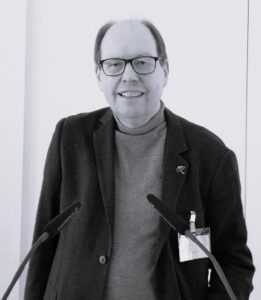 Dr Rolf Packroff is the Scientific Director of Department 4 "Hazardous Substances and Biological Agents" of the Federal Institute for Occupational Safety and Health (BAuA) since 2009. He began his work at the BAuA in 1992 as a scientific assistant after completing his doctorate at Heinrich Heine University in Düsseldorf in the field of quantum chemistry. His initial focus was on occupational health and safety and the regulation of asbestos, man-made mineral fibres and chemical substances under the European Existing Substances Regulation. He was involved in a number of technical rules for hazardous substances in Germany. For TRGS 400 "Risk assessment for activities involving hazardous substances", he chaired the working group in the Committee for Hazardous Substances from 2005 to 2008. As co-author of the Simple Measures Concept for Hazardous Substances (Einfaches Maßnahmenkonzept Gefahrstoffe, EMKG), he was instrumental in the introduction of "control banding" in Germany, which enables hazard-based derivation of occupational safety and health measures with easily accessible information. As scientific director, he coordinates the BAuA's research activities at the interface of EU chemical safety and occupational safety and health. Current issues include the safety of nanomaterials and other advanced materials. He served as an expert on the World Health Organization's working group for the evidence-based guideline on protecting workers from potential risks of manufactured nanomaterials published in 2017. Currently, his work focuses on protection from fibre dusts in innovative fibre materials and the contributions of OSH to the EU chemical strategy for sustainability.
Dr Rolf Packroff is the Scientific Director of Department 4 "Hazardous Substances and Biological Agents" of the Federal Institute for Occupational Safety and Health (BAuA) since 2009. He began his work at the BAuA in 1992 as a scientific assistant after completing his doctorate at Heinrich Heine University in Düsseldorf in the field of quantum chemistry. His initial focus was on occupational health and safety and the regulation of asbestos, man-made mineral fibres and chemical substances under the European Existing Substances Regulation. He was involved in a number of technical rules for hazardous substances in Germany. For TRGS 400 "Risk assessment for activities involving hazardous substances", he chaired the working group in the Committee for Hazardous Substances from 2005 to 2008. As co-author of the Simple Measures Concept for Hazardous Substances (Einfaches Maßnahmenkonzept Gefahrstoffe, EMKG), he was instrumental in the introduction of "control banding" in Germany, which enables hazard-based derivation of occupational safety and health measures with easily accessible information. As scientific director, he coordinates the BAuA's research activities at the interface of EU chemical safety and occupational safety and health. Current issues include the safety of nanomaterials and other advanced materials. He served as an expert on the World Health Organization's working group for the evidence-based guideline on protecting workers from potential risks of manufactured nanomaterials published in 2017. Currently, his work focuses on protection from fibre dusts in innovative fibre materials and the contributions of OSH to the EU chemical strategy for sustainability.
13:15 – 13:30
Introduction to MACRAMÉ and the Summit (presentation)
Steffi Friedrichs (AIST)
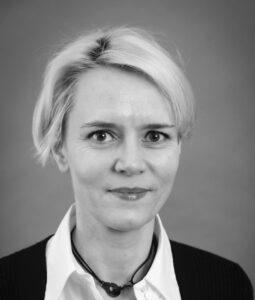 Dr Steffi Friedrichs, Founder & Director of AcumenIST SRL, has been a leading expert, policy advisor and business representative for emerging technological innovation for over 20 years.
Steffi made a name for herself as the founder and Director-General of the Nanotechnology Industries Association (NIA) group, where she established novel, collaborative approaches to the political representation of technology-based companies.
Having thus initiated numerous large-scale public-private collaborations and created channels for industries’ contributions to both international and national regulatory processes, Steffi subsequently worked for the OECD, where she developed its definition, indicators and impact assessment of biotechnology, nanotechnology, and other converging technologies, and led two international technology policy workshops on genome editing.
Wishing to support the advancement of transparent, science-based policy-making, Steffi gathered a strong track record in the establishment, development and representation of technology-based companies, and created and ran participatory technology assessment workshops. She initiated several outreach and communication initiatives to foster the public understanding of novel technologies. She was a Co-Founder and Member of the Board of Directors of the Chicago Micro- & Nanotechnology Community (CMNC), Director of the Master’s Programme in Micro- and Nanotechnology at the University of Cambridge, and Lecturer in Inorganic Chemistry and Solid State Chemistry at the University of Oxford.
Dr Steffi Friedrichs, Founder & Director of AcumenIST SRL, has been a leading expert, policy advisor and business representative for emerging technological innovation for over 20 years.
Steffi made a name for herself as the founder and Director-General of the Nanotechnology Industries Association (NIA) group, where she established novel, collaborative approaches to the political representation of technology-based companies.
Having thus initiated numerous large-scale public-private collaborations and created channels for industries’ contributions to both international and national regulatory processes, Steffi subsequently worked for the OECD, where she developed its definition, indicators and impact assessment of biotechnology, nanotechnology, and other converging technologies, and led two international technology policy workshops on genome editing.
Wishing to support the advancement of transparent, science-based policy-making, Steffi gathered a strong track record in the establishment, development and representation of technology-based companies, and created and ran participatory technology assessment workshops. She initiated several outreach and communication initiatives to foster the public understanding of novel technologies. She was a Co-Founder and Member of the Board of Directors of the Chicago Micro- & Nanotechnology Community (CMNC), Director of the Master’s Programme in Micro- and Nanotechnology at the University of Cambridge, and Lecturer in Inorganic Chemistry and Solid State Chemistry at the University of Oxford.
Chair:
Erik Bleeker (RIVM)
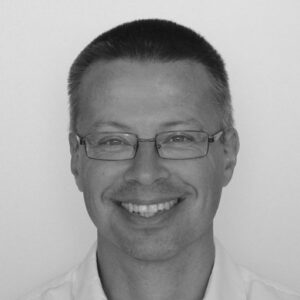
Dr. Eric Bleeker is a senior scientist at the National Institute of Public Health and the Environment (RIVM) in the Netherlands. He has a PhD in ecotoxicology and previously worked as a post-doc researcher in ecotoxicology for about 8 years. For the last 15 years he has been working on risk assessment of chemicals with a focus on nanomaterials, mainly focused on the European chemicals legislation REACH. His work on nanomaterials involves a broad range of topics. He provides policy advice and support, both on a national level (to several Dutch ministries), as well as on international levels (e.g. in adaptations of the REACH Regulation, the EU Recommendation on the definition of nanomaterials, and representing the Netherlands in ECHA’s NanoMaterials Expert Group and in the OECD Working Party on Manufactured Nanomaterials). He also contributes to guidance and test guidelines for nanomaterials (e.g. REACH Guidance at ECHA, OECD Test Guidelines and Guidance Documents). Furthermore, he has been and still is participating in several EU research projects that support risk assessment of nanomaterials (e.g. GRACIOUS, Gov4Nano, and NanoHarmony), which included advancing grouping approaches, test guideline developments, and governance. Currently, he expands his activities towards more advanced materials (e.g. in OECD-WPMN and the EU project MACRAMÉ).
13:30 – 13:50
The European policy landscape and lessons learned from nano governance for AdMas
Presentation (access restricted to Summit attendees: please use the password provided)
Lya Hernandez (RIVM)

Dr. Soeteman-Hernandez is a toxicologist by training (Queen’s University, Canada) and is currently an Expert in applying the Safe and Sustainable Innovation Approach (SSIA) for the development of safer and more sustainable materials, chemicals, products and processes. She is experienced in developing system approaches and translating them into operational tools. She is one of the main developers of SSIA which contains the concept of Regulatory Preparedness, Safe-and-Sustainable-by-Design and Trusted Environment. These concepts originate from the awareness that new technologies like nanotechnology have uncovered the limits of present regulatory systems and demand more agile governance systems.
She is co-chair and Leading Expert at the OECD Working Party on Manufactured Nanomaterials SSIA Steering Group, where she assesses how the international community develop and apply innovative, pro-active, co-creative and inclusive approaches to improve nano risk governance. The main focus of her work is the operationalization of SSIA and safe-and-sustainable-by-design in the context of the recently published EC JRC framework and EC recommendation. This is reflected in her role as a work-package or task leader in many European projects working on the operationalization of safe-and-sustainable-by-design (SUNSHINE, IRISS, SURPASS, SAbyNA, PARC) for materials, chemicals, processes and products.
13:50 – 14:10
Implementation of the SSbD framework (presentation)
Hubert Rauscher (JRC)
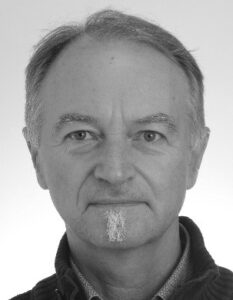
PD Dr. Hubert Rauscher (PhD in Physics, Technical University Munich; lecturer in Physical Chemistry, University of Ulm) co-developed the JRC framework for the definition of criteria and evaluation procedure for safe and sustainable by design (SSbD) chemicals and materials, which is the scientific basis of the EC Recommendation establishing a European assessment framework for safe and sustainable by design chemicals and materials. He contributes to the currently ongoing testing and implementation of the SSbD framework
Hubert is project leader for safe and sustainable advanced materials at the unit ‘Technologies for Health’ of the European Commission’s (EC) Joint Research Centre (JRC) where he started to work on nanomaterials and nanosafety in 2005. He did postdoctoral research on physico-chemical properties of nanomaterials at the Universities of Wisconsin-Madison (USA) and Ulm (Germany). At the JRC he provides scientific support to make EU legislation fit for advanced materials including nanomaterials. He has published more than 150 scientific papers and has been involved in several European Research projects on the safety of nanomaterials and now also on safe and sustainable advanced materials (e.g. GRACIOUS, SUNSHINE). Hubert also leads the JRC’s activities on the EC's nanomaterial definition and related guidance and works with international fora such as the OECD’s Working Party on Manufactured Nanomaterials, e.g. in the steering groups “Advanced Materials” and “Safe and Sustainable Innovation Approach”.
14:10 – 14:40
Life Cycle Assessment and Risk Assessment (presentation)
Roland Hischier (Empa)
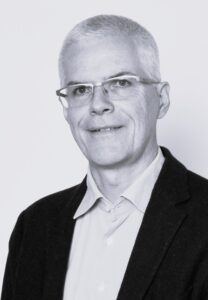
Dr. Roland Hischier, who holds a doctorate in environmental science from ETH Zurich, heads the "Advancing Life Cycle Assessment" (ALCA) research group for the further development of the life cycle assessment instrument at Empa in St. Gallen. The title of his Thesis is " Life Cycle Assessment of Manufactured Nanomaterials: Inventory Modelling Rules and Application Example". Roland Hischier has more than 25 years of experience in the field of life cycle assessment (primarily in the areas of packaging, information and communication technology, electromobility, as well as nanotechnology … his first EU-funded project related to nanotechnology started in 2005) and has been involved in the activities around ecoinvent - one of the most important background databases for life cycle assessments - for more than 20 years; since 2016 as President of the Supervisory Board of the Zurich-based association of the same name.
14:40 – 15:00
Characterisation Factors in Life Cycle Assessment
Presentation (access restricted to Summit attendees: please use the password provided)
Bernd Nowack (Empa)
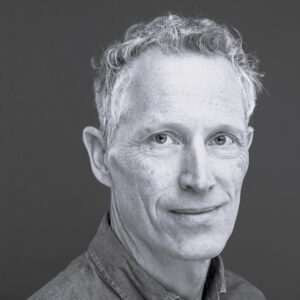
Prof. Dr. Bernd Nowack holds a MSc. (1992) and a PhD (1995) in environmental sciences from ETH Zürich. After research stays at the Johns Hopkins University in Baltimore, USA, Eawag in Dübendorf, Switzerland, and ETH Zürich, he is leading since 2007 the "Environmental Risk Assessment and Management" group at Empa, the Swiss Federal Laboratories for Materials Science and Technology. He is also adjunct professor in the Department of Environmental Systems Science at ETH Zürich.
His research deals with environmental risks of engineered nanomaterials, nanobiomaterials, plastics and nano/microplastics, comprising a wide spectrum of different approaches: development and application of methods for material flow modeling, exposure modeling, biouptake modeling and environmental risk assessment; experimental studies about release of materials from products and development of methods for safe and sustainable by design (SSbD).
Bernd Nowack has published more than 230 peer-reviewed publications and has a Scopus h-factor of 77. He acted as co-advisor of 30 PhD projects and is founding co-Editor-in-Chief of the journal NanoImpact. He has been listed from 2014 to 2022 for nine consecutive times as “Highly Cited Researcher” in the category “Environmental Sciences/Ecology” from Clarivate Analytics (Web of Science).
15:00 – 15:30
Chair:
Kathleen Spring (BioMS)
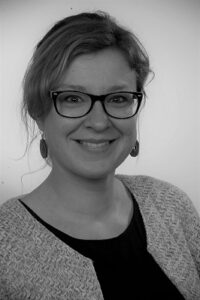
Kathleen Spring, PhD, managing director at Gesellschaft für Bioanalytik Münster e.V. in Münster, Germany. I hold a Diploma in Human Biology of the University of Greifswald (2007) and a PhD (2012) in Molecular Biology of the University of Montreal, Canada. I started in 2017 as project manager at Bioanalytik Münster. Since 2020 I am the managing director of the organisation. I am a member of the ETPN (European Platform for nanomedicine) board helping to shape the nanomedicine community in Europe. From 2019 – 2022 I was coordinator of the H2020 project REFINE helping the nanomed community to prepare products for regulation and on the other hand to create a regulatory science framework for the risk-benefit assessment of nanomedical products.
Bioanalytik Münster is a non-profit organisation. It’s a regional network which was initiated in 2000 by local universities, research centres, enterprises, transfer institutions and investors to promote science, research and education in the field of (nano) bioanalytics in Münster region. We provide a central communication and information platform for scientists, entrepreneurs, investors and members of the public who are interested in bioanalytics, Life Sciences and Health technologies. Bioanalytik Münster was involved as a partner in several EU-funded projects over the past 15 years always valued to be a reliable strategic partner.
15:30- 15:40
Regulators’ View (presentation)
Camelia Constantin (ECHA)
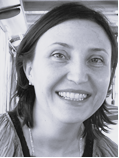
Camelia Constantin earned her bachelor's and master's degrees in Biology from the "A.I. Cuza" University of Iasi, Romania, and her PhD in Microbiology from the University of Helsinki. She has been employed at the European Chemicals Agency (ECHA) since 2010, focusing on toxicological hazard assessment in industry dossiers during testing proposal phases and compliance check evaluations.
For over nine years, she has played a key role in ECHA's Task Force for Nanomaterials. Her notable contributions include participating in the ECHA team that revised REACH Annexes VII-XI from 2014 to 2020. From 2015 to 2018, she was a member of the WNT-WPMN Joint Expert Group working on Inhalation Test Guidelines for nanomaterials safety testing. Between 2016 and 2020, she served on the advisory board for the SmartNanoTox Project. In 2020, she coordinated the update of ECHA's guidance on information requirements for nanomaterials concerning human health endpoints. Since 2021, Constantin has been a part of the Working Group of National Coordinators for the Test Guidelines Programme (WNT), focusing on the Joint WNT-WPMN Expert Group on Toxicokinetics for Nanoparticles.
15:40 – 15:50
Large Industries’ View
Presentation (access restricted to Summit attendees: please use the password provided)
Xavier Chaucherie (SARPI – VEOLIA)
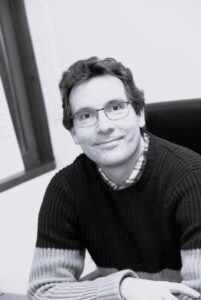 Xavier Chaucherie is the Director of the Innovation and Processes Department within SARPI-VEOLIA Group. He has over 15 years of experience in the hazardous and non hazardous waste management industry. He has been involved in several Research and Innovation projects at national and European levels in the field of methods development for characterizing nanoparticles from various end-of-life materials treatment steps. He is the author and co-author of over 20 publications and 8 patents. He holds an Engineer Diploma in Physical and Chemical Processes along with a Master in Aerosol Science from Saclay University.
Xavier Chaucherie is the Director of the Innovation and Processes Department within SARPI-VEOLIA Group. He has over 15 years of experience in the hazardous and non hazardous waste management industry. He has been involved in several Research and Innovation projects at national and European levels in the field of methods development for characterizing nanoparticles from various end-of-life materials treatment steps. He is the author and co-author of over 20 publications and 8 patents. He holds an Engineer Diploma in Physical and Chemical Processes along with a Master in Aerosol Science from Saclay University.
15:50 – 16:00
SMEs’ View (presentation)
Daniel Müller (MyBiotech)
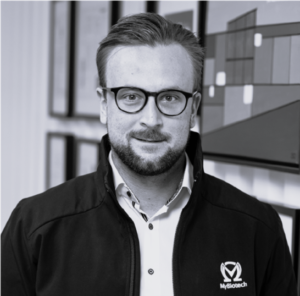
16:00 – 16:10
Consumers’ View (presentation)
Cyrille Durand (TEMASOL)
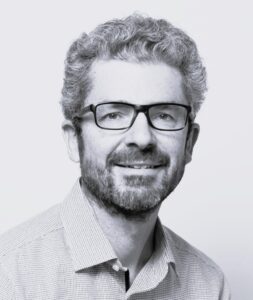 Cyrille is a Sustainability lead, with strong international corporate experience in circular and sustainable products & materials. Cyrille has over 20 years of solid experience in the consumer goods industry: Research & Innovation, Sustainable Design, Manufacturing and Quality. Prior to joining TEMAS Solutions Cyrille was the lead of the Circular Plastics & Packaging project at the World Business Council for Sustainable Development. Cyrille has a Mechanical Engineer diploma from the Université de Compiegne, France and a Master of Science in Polymers Engineering from Cranfield University, UK.
Cyrille is a Sustainability lead, with strong international corporate experience in circular and sustainable products & materials. Cyrille has over 20 years of solid experience in the consumer goods industry: Research & Innovation, Sustainable Design, Manufacturing and Quality. Prior to joining TEMAS Solutions Cyrille was the lead of the Circular Plastics & Packaging project at the World Business Council for Sustainable Development. Cyrille has a Mechanical Engineer diploma from the Université de Compiegne, France and a Master of Science in Polymers Engineering from Cranfield University, UK.
16:10 – 16:20
Researchers’ View (presentation)
Natalia Konchakova (Hereon)
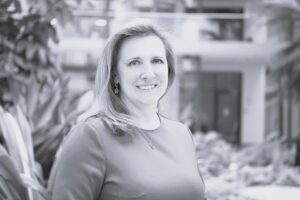
Dr. Natalia Konchakova is a senior scientist at Helmholtz-Zentrum Hereon, Germany. She works in the fields of materials modelling, simulation and characterization of lightweight metals, computation analysis of mechanically induced corrosion, and investigation of Magnesium based materials for bio- and structural industrial applications. Knowledge and technology transfer for industrial end-users through digitalization, materials modeling translation and open innovation environment are in the field of scientific interests of Dr. Konchakova. Natalia is an active member of the European Materials Modelling Council (EMMC). She is a Chair of the EMMC Organizational Assembly.
Dr. Konchakova is the coordinator of the H2020 European project VIPCOAT: ‘Virtual Open Innovation Platform for Active Protective Coatings Guided by Modelling and Optimization’ (DT-NMBP-11-2020, GA 952903). The aim of the project is to assist engineers in coating manufacturing in developing novel environmentally friendly active protective coatings and to advice accelerated test scenarios for their durability based on standardized simulation workflows.
Natalia Konchakova is also the coordinator of DigiPass CSA project: ‘Harmonization of Advanced Materials Ecosystems serving strategic Innovation Markets to pave the way to a Digital Materials & Product Passport’ (HORIZON-CL4-2023-RESILIENCE-01, GA 101138510), which has the overarching objective to enhance the digital maturity of the European communities that develop materials and intermediate products.
16:20 – 17:30
Panel Discussion
Stakeholder views on risk assessment in the context of Life Cycle Assessment
Participants: Roland Hischier, Bernd Nowack, Camelia Constantin, Xavier Chaucherie, Daniel Müller, Peter Klein, Cyrille Durand
Moderator:
Steffi Friedrichs (AIST)
 Dr Steffi Friedrichs, Founder & Director of AcumenIST SRL, has been a leading expert, policy advisor and business representative for emerging technological innovation for over 20 years.
Steffi made a name for herself as the founder and Director-General of the Nanotechnology Industries Association (NIA) group, where she established novel, collaborative approaches to the political representation of technology-based companies.
Having thus initiated numerous large-scale public-private collaborations and created channels for industries’ contributions to both international and national regulatory processes, Steffi subsequently worked for the OECD, where she developed its definition, indicators and impact assessment of biotechnology, nanotechnology, and other converging technologies, and led two international technology policy workshops on genome editing.
Wishing to support the advancement of transparent, science-based policy-making, Steffi gathered a strong track record in the establishment, development and representation of technology-based companies, and created and ran participatory technology assessment workshops. She initiated several outreach and communication initiatives to foster the public understanding of novel technologies. She was a Co-Founder and Member of the Board of Directors of the Chicago Micro- & Nanotechnology Community (CMNC), Director of the Master’s Programme in Micro- and Nanotechnology at the University of Cambridge, and Lecturer in Inorganic Chemistry and Solid State Chemistry at the University of Oxford.
Dr Steffi Friedrichs, Founder & Director of AcumenIST SRL, has been a leading expert, policy advisor and business representative for emerging technological innovation for over 20 years.
Steffi made a name for herself as the founder and Director-General of the Nanotechnology Industries Association (NIA) group, where she established novel, collaborative approaches to the political representation of technology-based companies.
Having thus initiated numerous large-scale public-private collaborations and created channels for industries’ contributions to both international and national regulatory processes, Steffi subsequently worked for the OECD, where she developed its definition, indicators and impact assessment of biotechnology, nanotechnology, and other converging technologies, and led two international technology policy workshops on genome editing.
Wishing to support the advancement of transparent, science-based policy-making, Steffi gathered a strong track record in the establishment, development and representation of technology-based companies, and created and ran participatory technology assessment workshops. She initiated several outreach and communication initiatives to foster the public understanding of novel technologies. She was a Co-Founder and Member of the Board of Directors of the Chicago Micro- & Nanotechnology Community (CMNC), Director of the Master’s Programme in Micro- and Nanotechnology at the University of Cambridge, and Lecturer in Inorganic Chemistry and Solid State Chemistry at the University of Oxford.
Peter Klein (Fraunhofer ITWM)
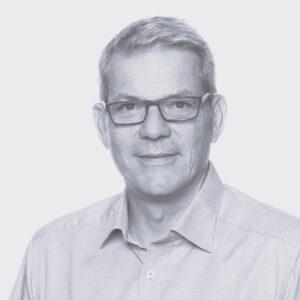
Dr. Peter Klein is a senior scientist at Fraunhofer Institute of Industrial Mathematics (ITWM), Kaiserslautern, Germany. He holds a PhD in Physics from the Technical University of Kaiserslautern, with a thesis on “Klassische und Tight-Binding Molekulardynamik für niederenergetische Prozesse in Materialien”.
During his 20+ years at the ITWM Dr. Klein held various R&D roles at several departments, covering fluid dynamics, parallelization, molecular dynamics, development of production devices and medical applications. Since his PhD thesis, Peter is working on multiscale models for materials, with a focus on surface and interface related phenomena. The current research focus of Peter is the area of business decision support systems, where he couples materials modelling with multi-criteria optimization methods.
17:30 – 17:35
Wrap-Up of Day 1
Kathleen Spring (BioMS)

Kathleen Spring, PhD, managing director at Gesellschaft für Bioanalytik Münster e.V. in Münster, Germany. I hold a Diploma in Human Biology of the University of Greifswald (2007) and a PhD (2012) in Molecular Biology of the University of Montreal, Canada. I started in 2017 as project manager at Bioanalytik Münster. Since 2020 I am the managing director of the organisation. I am a member of the ETPN (European Platform for nanomedicine) board helping to shape the nanomedicine community in Europe. From 2019 – 2022 I was coordinator of the H2020 project REFINE helping the nanomed community to prepare products for regulation and on the other hand to create a regulatory science framework for the risk-benefit assessment of nanomedical products.
Bioanalytik Münster is a non-profit organisation. It’s a regional network which was initiated in 2000 by local universities, research centres, enterprises, transfer institutions and investors to promote science, research and education in the field of (nano) bioanalytics in Münster region. We provide a central communication and information platform for scientists, entrepreneurs, investors and members of the public who are interested in bioanalytics, Life Sciences and Health technologies. Bioanalytik Münster was involved as a partner in several EU-funded projects over the past 15 years always valued to be a reliable strategic partner.
from 17:35
DAY 2 (Tuesday, 28th November 2023)
08:00 – 08:30
08:30 – 08:45
Welcome & Introduction
Elisabeth Heunisch (BAuA)
 Dr. Elisabeth Heunisch is a scientist at the Federal Institute for Occupational Safety and Health (BAuA) in Germany with a background in Physical Chemistry. She has a PhD in Chemistry obtained at the Free University Berlin for her work at the Helmholtz-Zentrum Berlin on charge separation in quantum dot layers. Her work is dedicated towards the safety of nano- and advanced materials, with a strong focus on occupational safety towards fibrous aerosols. She is co-leading the EU-funded project NanoHarmony and co-chairing the Malta Initiative, both dedicated to support the development of OECD Test Guidelines for nanomaterials. She is involved in several further research projects that support risk assessment of nano- and advanced materials (Gov4Nano, MACRAMÉ) and contributes to the OECD Test Guideline for dustiness testing of nanomaterials and the WPMN Guidance on Release Tests for Nanomaterials.
Dr. Elisabeth Heunisch is a scientist at the Federal Institute for Occupational Safety and Health (BAuA) in Germany with a background in Physical Chemistry. She has a PhD in Chemistry obtained at the Free University Berlin for her work at the Helmholtz-Zentrum Berlin on charge separation in quantum dot layers. Her work is dedicated towards the safety of nano- and advanced materials, with a strong focus on occupational safety towards fibrous aerosols. She is co-leading the EU-funded project NanoHarmony and co-chairing the Malta Initiative, both dedicated to support the development of OECD Test Guidelines for nanomaterials. She is involved in several further research projects that support risk assessment of nano- and advanced materials (Gov4Nano, MACRAMÉ) and contributes to the OECD Test Guideline for dustiness testing of nanomaterials and the WPMN Guidance on Release Tests for Nanomaterials.
Chair:
Klaus-Michael Weltring (BioMS)
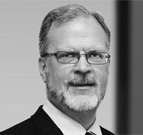
Dr. Klaus-Michael Weltring is a molecular biologist by training with a PhD and a Habilitation degree from the University of Münster. From 2001 – 2020 he was the managing director of bioanalytik-muenster, a local network of researchers from different disciplines and SMEs, responsible for the development of the Münster region into a leading nanobioanalytic location at the European level.
Between 2003 and 2008 he was the deputy-coordinator of the Nano2Life Network of Excellence and leader of the “ELSA” Board in this network. He co-managed the Nanomedicine Round Table and the EuroNanoBio projects and participated in the NANOMED2020 project (FP7 CSA projects). From 2009 to 2019 he was a member of the Executive Board of the ETP Nanomedicine leading the ELSA Advisory Group of this platform. Since its foundation in March 2015 until end of 2022 he was the chair of the German platform NanoBioMedicine.
In 2017 he was a member of the team defining the ESTHER (Emerging Smart Technologies for Health Care) concept initiated by the European Commission and MedTech Europe which laid the ground for the Innovative Medicine Initiative (IHI). In Horizon 2020 he participated in the EU-project REFINE and was the external ethical advisor of the EU-projects Training 4CRW and BIORIMA. Currently he is a partner in the Horizon Europe Project MACRAMÉ focussing on advanced characterisation methodologies to assess and predict the health and environmental risks of Advanced Materials.
08:45 – 09:00
Introduction to the Breakout Sessions
Klaus-Michael Weltring (BioMS)

Dr. Klaus-Michael Weltring is a molecular biologist by training with a PhD and a Habilitation degree from the University of Münster. From 2001 – 2020 he was the managing director of bioanalytik-muenster, a local network of researchers from different disciplines and SMEs, responsible for the development of the Münster region into a leading nanobioanalytic location at the European level.
Between 2003 and 2008 he was the deputy-coordinator of the Nano2Life Network of Excellence and leader of the “ELSA” Board in this network. He co-managed the Nanomedicine Round Table and the EuroNanoBio projects and participated in the NANOMED2020 project (FP7 CSA projects). From 2009 to 2019 he was a member of the Executive Board of the ETP Nanomedicine leading the ELSA Advisory Group of this platform. Since its foundation in March 2015 until end of 2022 he was the chair of the German platform NanoBioMedicine.
In 2017 he was a member of the team defining the ESTHER (Emerging Smart Technologies for Health Care) concept initiated by the European Commission and MedTech Europe which laid the ground for the Innovative Medicine Initiative (IHI). In Horizon 2020 he participated in the EU-project REFINE and was the external ethical advisor of the EU-projects Training 4CRW and BIORIMA. Currently he is a partner in the Horizon Europe Project MACRAMÉ focussing on advanced characterisation methodologies to assess and predict the health and environmental risks of Advanced Materials.
09:00 – 11:00
Breakout Session on Life Cycle based challenges addressing:
Chairs:
Elisabeth Heunisch (BAuA)
 Dr. Elisabeth Heunisch is a scientist at the Federal Institute for Occupational Safety and Health (BAuA) in Germany with a background in Physical Chemistry. She has a PhD in Chemistry obtained at the Free University Berlin for her work at the Helmholtz-Zentrum Berlin on charge separation in quantum dot layers. Her work is dedicated towards the safety of nano- and advanced materials, with a strong focus on occupational safety towards fibrous aerosols. She is co-leading the EU-funded project NanoHarmony and co-chairing the Malta Initiative, both dedicated to support the development of OECD Test Guidelines for nanomaterials. She is involved in several further research projects that support risk assessment of nano- and advanced materials (Gov4Nano, MACRAMÉ) and contributes to the OECD Test Guideline for dustiness testing of nanomaterials and the WPMN Guidance on Release Tests for Nanomaterials.
Dr. Elisabeth Heunisch is a scientist at the Federal Institute for Occupational Safety and Health (BAuA) in Germany with a background in Physical Chemistry. She has a PhD in Chemistry obtained at the Free University Berlin for her work at the Helmholtz-Zentrum Berlin on charge separation in quantum dot layers. Her work is dedicated towards the safety of nano- and advanced materials, with a strong focus on occupational safety towards fibrous aerosols. She is co-leading the EU-funded project NanoHarmony and co-chairing the Malta Initiative, both dedicated to support the development of OECD Test Guidelines for nanomaterials. She is involved in several further research projects that support risk assessment of nano- and advanced materials (Gov4Nano, MACRAMÉ) and contributes to the OECD Test Guideline for dustiness testing of nanomaterials and the WPMN Guidance on Release Tests for Nanomaterials.
Blanca Suarez Merino (TEMASOL)
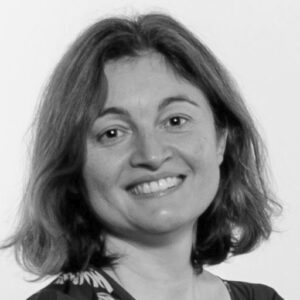
Dr Suarez-Merino (DPhil Oxford Biochemistry) is the Regulatory Affairs Director at the Nanotechnology Industries Association and Cofounder of TEMAS Solutions GmbH. Dr Suarez-Merino is Vice Chair of the BIAC Nanotechnology Committee at the OECD contributing to several groups under the OECD WPMN including the Steering Group on Advanced Materials and the Safe Innovation Approach. She also contributes to the Nanomaterial Expert Group under ECHA and the EFSA's Stakeholder Discussion Group on Emerging Risks (StadDG-ER). She is also a National Expert under the Nanotechnologies Standardisation Group (SNV) and routinely contributes to work under CEN/TC 352 Nanotechnologies, leading the SSbD standard. Dr Suarez-Merino is also a member of the Swiss National Platform on the safe handling of synthetic nanomaterials and co-authored the update of the Precautionary Matrix for Nanomaterials, and contributed to different testing guidelines for safety assessment of nanomaterials, the latest one being the adaptation of OECD TG 442D. She has been very active in European Projects focusing on Regulatory research and nanomaterials for several years.
Alberto Katsumiti (GAIKER)
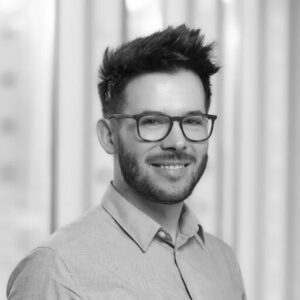 Dr Alberto Katsumiti is a researcher at GAIKER Technology Centre. He has 20 years’ experience in ecotoxicology and human health studies and 14 years’ experience in Nanotoxicology. He has a BSc Degree in Biology, MSc Degree in Ecology and Conservation, a second MSc Degree and PhD in Environmental Contamination and Toxicology. His research activity has been focused on the study of the mechanisms of toxicity of environmental pollutants especially emerging contaminants (e.g. nanomaterials, advanced materials, microplastics) on human health and the environment using alternative methods and in vitro tools. He has also been actively involved in the development of New Approach Methodologies (NAMs) for human and environmental hazard assessment. He is a member of the EU-NETVAL (European Union Network of Laboratories for the Validation of Alternative Methods), and GAIKER representative in the EFSA’s art 36 competent organisations.
Dr Alberto Katsumiti is a researcher at GAIKER Technology Centre. He has 20 years’ experience in ecotoxicology and human health studies and 14 years’ experience in Nanotoxicology. He has a BSc Degree in Biology, MSc Degree in Ecology and Conservation, a second MSc Degree and PhD in Environmental Contamination and Toxicology. His research activity has been focused on the study of the mechanisms of toxicity of environmental pollutants especially emerging contaminants (e.g. nanomaterials, advanced materials, microplastics) on human health and the environment using alternative methods and in vitro tools. He has also been actively involved in the development of New Approach Methodologies (NAMs) for human and environmental hazard assessment. He is a member of the EU-NETVAL (European Union Network of Laboratories for the Validation of Alternative Methods), and GAIKER representative in the EFSA’s art 36 competent organisations.
11:00 – 11:30
11:30 – 12:30
Reporting from Breakout Sessions and capturing of Recommendations by the Breakout Session Chairs
Moderator:
Klaus-Michael Weltring (BioMS)

Dr. Klaus-Michael Weltring is a molecular biologist by training with a PhD and a Habilitation degree from the University of Münster. From 2001 – 2020 he was the managing director of bioanalytik-muenster, a local network of researchers from different disciplines and SMEs, responsible for the development of the Münster region into a leading nanobioanalytic location at the European level.
Between 2003 and 2008 he was the deputy-coordinator of the Nano2Life Network of Excellence and leader of the “ELSA” Board in this network. He co-managed the Nanomedicine Round Table and the EuroNanoBio projects and participated in the NANOMED2020 project (FP7 CSA projects). From 2009 to 2019 he was a member of the Executive Board of the ETP Nanomedicine leading the ELSA Advisory Group of this platform. Since its foundation in March 2015 until end of 2022 he was the chair of the German platform NanoBioMedicine.
In 2017 he was a member of the team defining the ESTHER (Emerging Smart Technologies for Health Care) concept initiated by the European Commission and MedTech Europe which laid the ground for the Innovative Medicine Initiative (IHI). In Horizon 2020 he participated in the EU-project REFINE and was the external ethical advisor of the EU-projects Training 4CRW and BIORIMA. Currently he is a partner in the Horizon Europe Project MACRAMÉ focussing on advanced characterisation methodologies to assess and predict the health and environmental risks of Advanced Materials.
12:30 – 13:00
Closing of the Summit
Steffi Friedrichs (AIST)
 Dr Steffi Friedrichs, Founder & Director of AcumenIST SRL, has been a leading expert, policy advisor and business representative for emerging technological innovation for over 20 years.
Steffi made a name for herself as the founder and Director-General of the Nanotechnology Industries Association (NIA) group, where she established novel, collaborative approaches to the political representation of technology-based companies.
Having thus initiated numerous large-scale public-private collaborations and created channels for industries’ contributions to both international and national regulatory processes, Steffi subsequently worked for the OECD, where she developed its definition, indicators and impact assessment of biotechnology, nanotechnology, and other converging technologies, and led two international technology policy workshops on genome editing.
Wishing to support the advancement of transparent, science-based policy-making, Steffi gathered a strong track record in the establishment, development and representation of technology-based companies, and created and ran participatory technology assessment workshops. She initiated several outreach and communication initiatives to foster the public understanding of novel technologies. She was a Co-Founder and Member of the Board of Directors of the Chicago Micro- & Nanotechnology Community (CMNC), Director of the Master’s Programme in Micro- and Nanotechnology at the University of Cambridge, and Lecturer in Inorganic Chemistry and Solid State Chemistry at the University of Oxford.
Dr Steffi Friedrichs, Founder & Director of AcumenIST SRL, has been a leading expert, policy advisor and business representative for emerging technological innovation for over 20 years.
Steffi made a name for herself as the founder and Director-General of the Nanotechnology Industries Association (NIA) group, where she established novel, collaborative approaches to the political representation of technology-based companies.
Having thus initiated numerous large-scale public-private collaborations and created channels for industries’ contributions to both international and national regulatory processes, Steffi subsequently worked for the OECD, where she developed its definition, indicators and impact assessment of biotechnology, nanotechnology, and other converging technologies, and led two international technology policy workshops on genome editing.
Wishing to support the advancement of transparent, science-based policy-making, Steffi gathered a strong track record in the establishment, development and representation of technology-based companies, and created and ran participatory technology assessment workshops. She initiated several outreach and communication initiatives to foster the public understanding of novel technologies. She was a Co-Founder and Member of the Board of Directors of the Chicago Micro- & Nanotechnology Community (CMNC), Director of the Master’s Programme in Micro- and Nanotechnology at the University of Cambridge, and Lecturer in Inorganic Chemistry and Solid State Chemistry at the University of Oxford.
Elisabeth Heunisch (BAuA)
 Dr. Elisabeth Heunisch is a scientist at the Federal Institute for Occupational Safety and Health (BAuA) in Germany with a background in Physical Chemistry. She has a PhD in Chemistry obtained at the Free University Berlin for her work at the Helmholtz-Zentrum Berlin on charge separation in quantum dot layers. Her work is dedicated towards the safety of nano- and advanced materials, with a strong focus on occupational safety towards fibrous aerosols. She is co-leading the EU-funded project NanoHarmony and co-chairing the Malta Initiative, both dedicated to support the development of OECD Test Guidelines for nanomaterials. She is involved in several further research projects that support risk assessment of nano- and advanced materials (Gov4Nano, MACRAMÉ) and contributes to the OECD Test Guideline for dustiness testing of nanomaterials and the WPMN Guidance on Release Tests for Nanomaterials.
Dr. Elisabeth Heunisch is a scientist at the Federal Institute for Occupational Safety and Health (BAuA) in Germany with a background in Physical Chemistry. She has a PhD in Chemistry obtained at the Free University Berlin for her work at the Helmholtz-Zentrum Berlin on charge separation in quantum dot layers. Her work is dedicated towards the safety of nano- and advanced materials, with a strong focus on occupational safety towards fibrous aerosols. She is co-leading the EU-funded project NanoHarmony and co-chairing the Malta Initiative, both dedicated to support the development of OECD Test Guidelines for nanomaterials. She is involved in several further research projects that support risk assessment of nano- and advanced materials (Gov4Nano, MACRAMÉ) and contributes to the OECD Test Guideline for dustiness testing of nanomaterials and the WPMN Guidance on Release Tests for Nanomaterials.
13:00 – 15:00